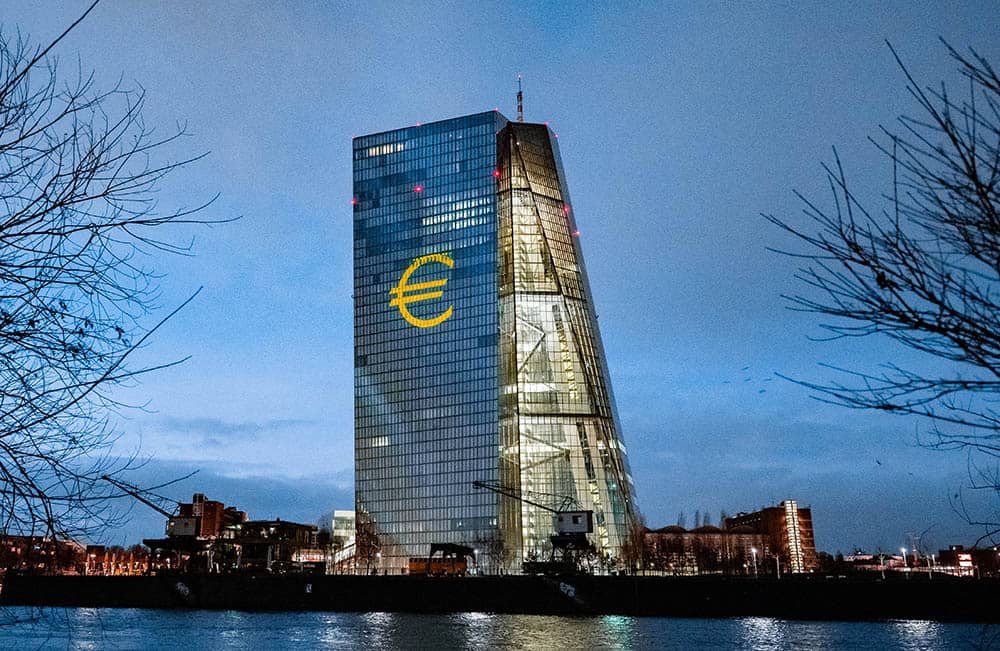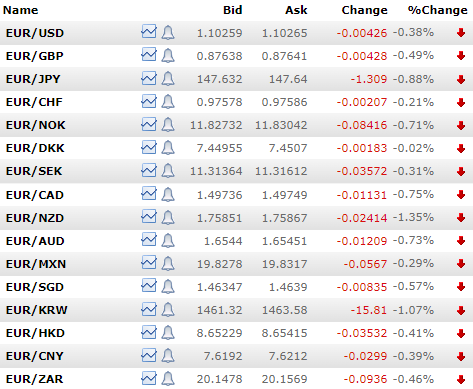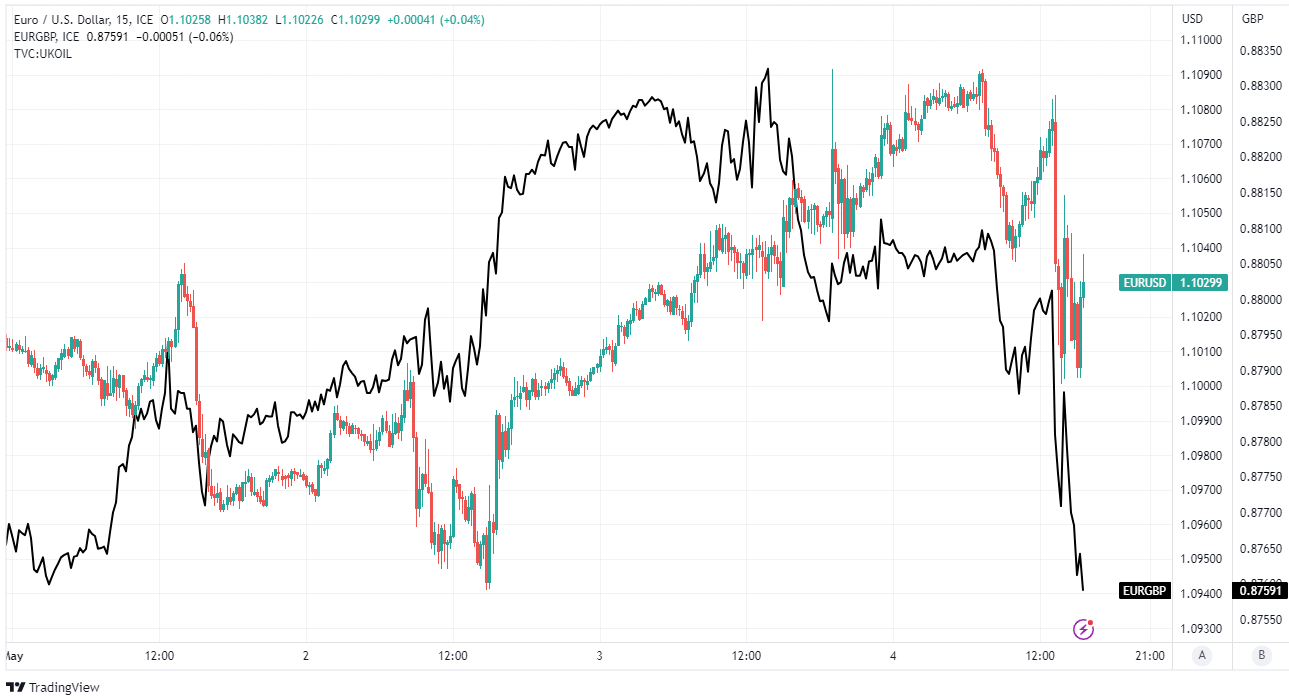EUR/USD Rate Sinks as ECB Decision Weighs on Single Currency
- Written by: James Skinner

© European Central Bank, reproduced under CC licensing
A sinking Euro and softer Dollar pulled the single currency lower across the board on Thursday after the European Central Bank (ECB) met expectations for a smaller increase in interest rates but warned of further action if economic data doesn't respond better, and in short order, to the steps taken so far.
Europe's single currency fell against all major counterparts on Thursday after the ECB announced its smallest increase in interest rates since first beginning to withdraw monetary stimulus from the economy in July 2022 but suggested further increases are possible at a point when the Euro Area economy has all but stalled.
"What I'm telling you now is that, given our baseline, the findings that we have, the data that we can analyse today; we are not pausing. That applies to today, and based on what we see, we determine that we have more ground to cover," President Christine Lagarde told reporters at the press conference.
"We believe we have more ground to cover. It is not state-dependent, it is not time-dependent, it is a judgment that we make today," she added.
Thursday's quarter percent increase took a once-negative ECB deposit rate to 3.25% while lifting the main refinancing rate to 3.75% and also came alongside a decision to abandon the monthly limit on how much one of its Quantitative Easing (QE) government bond portfolios is allowed to shrink through Quantitative Tightening (QT) each month.

Above: Interbank reference rates for selected Euro exchange rates. Source: Netdania.
The Asset Purchase Programme portfolio will then be left to evapourate naturally but the June decision on interest rates is likely to refflect the economic data and inflation outcomes emerging in the interim, making them ever more important influences for the Euro.
Thursday's decision comes amid a divergence between private business surveys appearing to suggest a bottoming out of activity in the manufacturing and services sectors in recent months, and official data indicating that economic growth was weaker than anticipated in the opening quarter.
"Business and consumer confidence have recovered steadily in recent months but remain weaker than before Russia’s unjustified war against Ukraine and its people. We see a divergence across sectors of the economy," President Lagarde and Vice President Luis de Guindos said in a statement.
"Lower energy prices, the easing of supply bottlenecks and fiscal policy support for firms and households have contributed to the resilience of the economy. At the same time, private domestic demand, especially consumption, is likely to have remained weak," they add.
Some adapted measures of inflation have begun to suggest domestic price pressures may be easing, however, after the core inflation rate ticked down from 5.7% to 5.6% last month even as the overall inflation rate edged higher from 6.9% to 7% due to increases in energy and food costs.
These adapted measures of inflation have tended to follow the overall inflation rate in recent cycles, although it's not impossible for them to diverge as the effect of ECB policy begins to be felt more fully in the Euro Area economies where the duration of mortgage rate fixings is shorter than in some other parts of the world.

Above: Euro to Dollar rate shown at hourly intervals alongside EUR/GBP.




